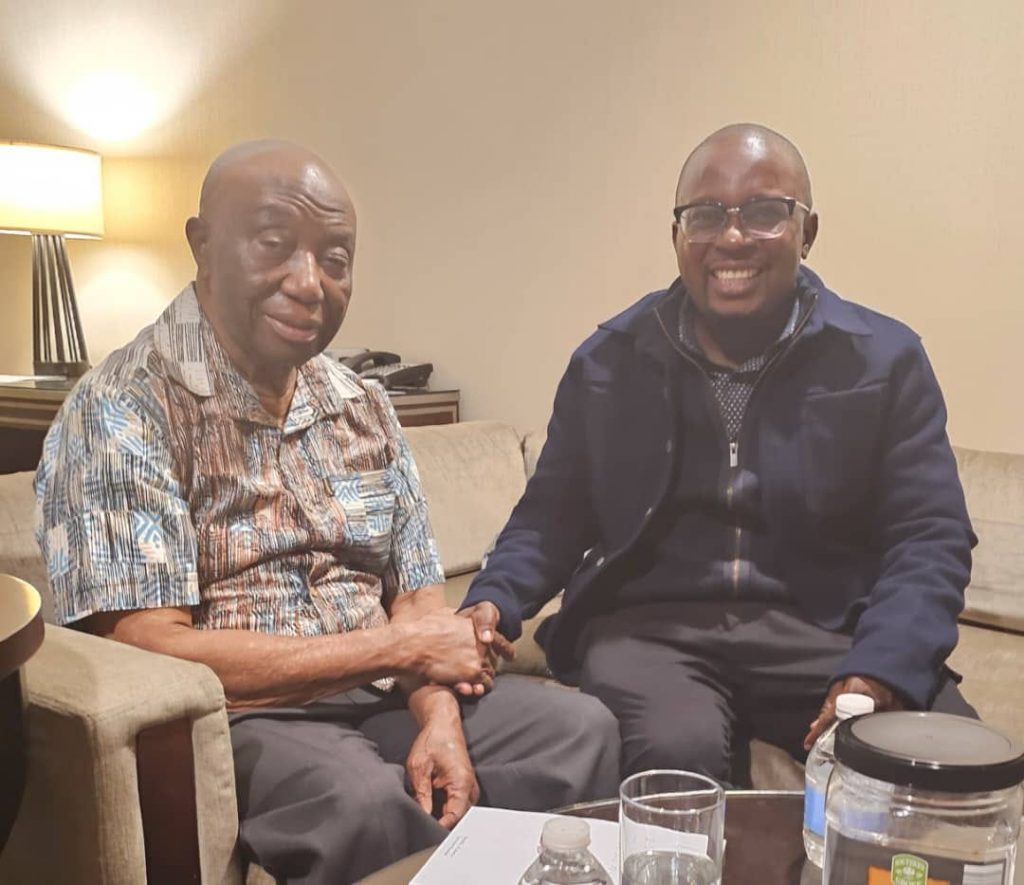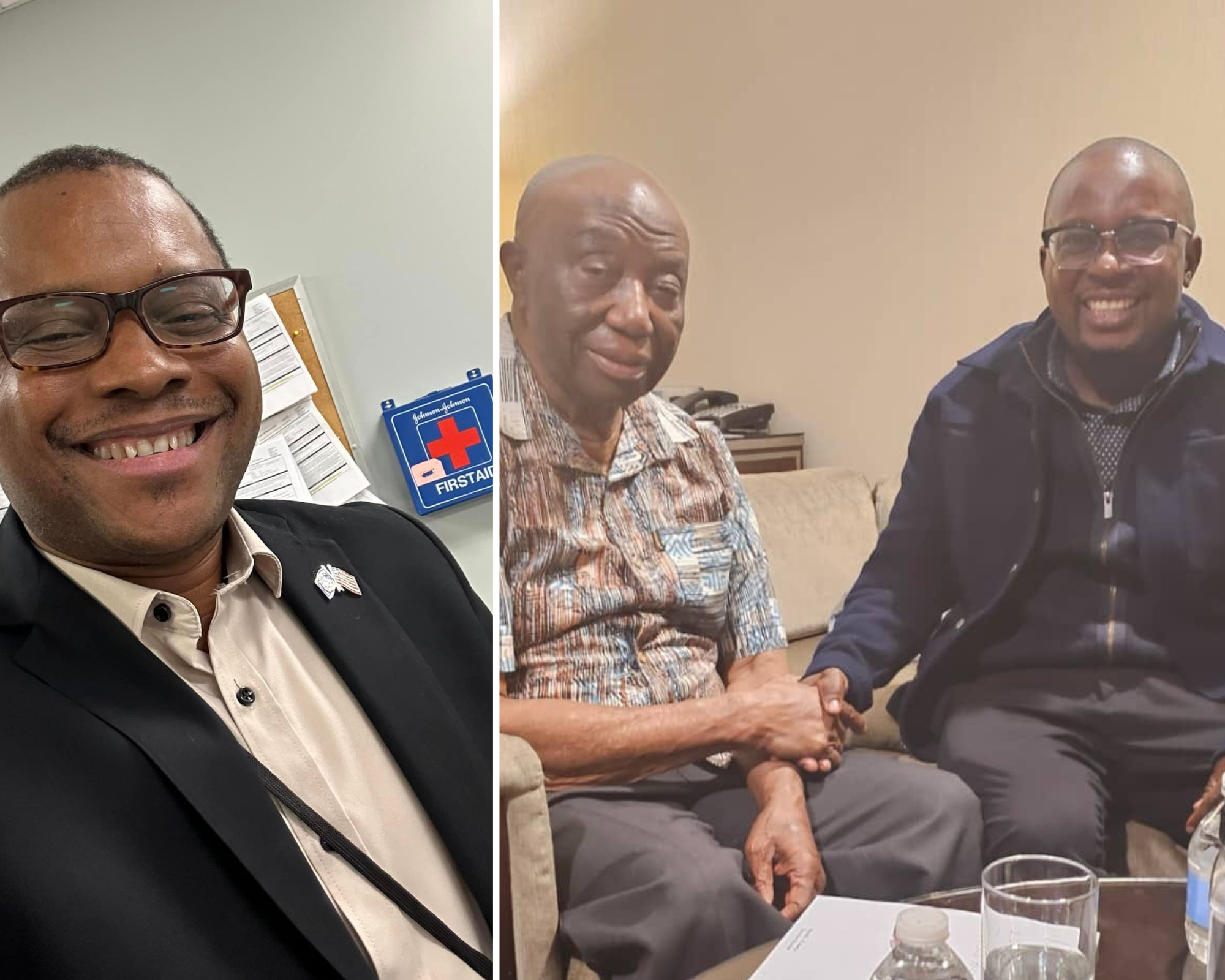THE FORMER AUDITOR GENERAL of the Republic of Liberia John S. Morlu II, who became famous for his condemnation of the Ellen and Boakai administration for corruption, claiming that the government was three times more corrupt than the previous administration of Interim President Charles Gyude Bryant (17 January 1949 – 16 April 2014), asserted that the outgoing government of the Coalition of Democratic Change (CDC) and the incoming government of the Unity Party (UP) Joint Presidential Transitional Team (JPTT) exercise will meet an imminent failure. He made the assertion when he appeared on the SPOON Talk on Tuesday night 02 January 2024. He suggested that the failure will be due to the CDC’s uncooperative posture, with many CDC officials absent from office or reluctant to cooperate with the UP JPTT representatives.
DESPITE THE LAST MINUTE ALARM, the JPTT members of both sides have shown no prior indications of contention nor has the UP made any official accusation against the outgoing administration of President George M. Weah or his team serving or facilitating the JPTT efforts. Quite to the contrary, the JPTT has held multiple joint press conferences putting up a unified front assuring the Liberian people that the transitional process was well on track. The UP through its Secretary General Amos Tweah has on a number of occasions through press conferences and published press releases confirmed the satisfaction of the party and President-elect Joseph N. Boakai over the process.

THE FRUSTRATION of Mr. Morlu who became a staunch supporter and strategist of the Joseph Boakai campaign, and subsequently a member of the JPTT, is crying at this eleventh hour when the inauguration of Mr. Boakai is just weeks away. Something which has come as a surprise to many observers. Political commentators and pundits had criticized Mr. Boakai’s decision to travel to the United States on December 1, 2023, right after his victory in a very close presidential election that he won with less than a 1% margin. According to the UP, Mr. Boakai was leaving the transitional process with his Vice President elect Sen. Jeremiah K. Koung to lead the JPTT while he celebrated the party’s victory with partisans, and visited with family members.
CRITICS OF BOAKAI DECISION to leave the country for nearly a month immediately after the elections, and at the time much attention was needed to drive the transitional process, saw his action as a serious misstep and poor leadership, especially when his campaign had emphasized a high level of ineptitude of the Weah administration. Mr. Boakai had contended that President Weah lacks the knowledge and experience to run the country, putting it in a critical condition of total failure. So, political commentators and pundits found it a contradiction that Mr. Boakai would decide not to work very closely with his counterpart to ensure maximum effort was exerted to ensure a successful transition of power and governance infrastructure or mechanisms to his own advantage.
ACCORDING TO MR. MORLU, the UP representation on the JPTT should go public and declare that the transactional process is a complete failure. He wants the UP to make the disclosure sooner than later because according to him, he foresees major complexities for the incoming administration due to the level of unpreparedness that will result from the failure of the transitional exercise. He warns that if the UP does not go public now, they will have to take the blame for the difficulties ahead. However, it is not clear how Liberians will react to such an abrupt change in the political narrative – from cordiality and harmony to a cry of absolute doom. Even though Mr. Morlu seems to put all the blame on the Weah administration for his assertion that the transitional process is destined to be a complete flop, this sudden shift begs the question of “What actually went wrong?”
THE UP SUPPORTERS have vehemently rejected public outcry that Mr. Boakai abandonment of the transitional process was a misstep. Even Mr. Boakai upon his return from his nearly one-month excursion in the U.S. applauded the JPTT work and expressed satisfaction over how cordial and smooth the process has been in his absence, and that he was in constant communication with his Vice President-elect who is co-chairing the JPTT on his behalf. Mr. Boakai’s prolonged travel in the face of this latest development will leave a sense of Deja vu for many Liberians who heard Mr. Boakai on many occasions condemned President Weah for abandoning the country during what he felt were critical moments that needed him to be in the country. Has Mr. Boakai contradicted himself by his action, by doing exactly what he condemned outgoing President Weah for?
THR LIBERIAN PEOPLE, political commentators, and pundits will be waiting to see how President-elect Boakai or the UP will react to Mr. Morlu’s comments. For the most part, critics will not be surprised if Mr. Boakai remains mute as usual, but they will be waiting to see how the JPTT or their respective political parties will respond to Mr. Morlu’s statements, as the public seeks clarity for such abrupt change in the political climate relative to the traditional process. It can’t be overemphasized that Liberians have had a very politically charged electoral year in 2023, and expectations are very high. Any failure on the part of Mr. Boakai or the UP to provide the leadership desired by the Liberian people could see a very early erosion of the UP administration’s favor among ordinary Liberians.

Dr. Clarence R. Pearson, Sr. is a Liberian clergy and social scientist with strong interest in advancing global peace, human rights, a safe planet, and social equity. He holds a BA in Theology, and MA with distinction from the Kofi Annan Institute for Conflict Transformation, University of Liberia. He also graduated with honor from the Louisiana Baptist University and Seminary, Shreveport, Louisiana, USA with A PhD in Psychology and Counseling. Dr. Pearson is a social researcher, an educator, and an author. He has over 29 years of practical professional experience in post-conflict peace-building, recovery, and development with emphasis in both the public and private sector.

